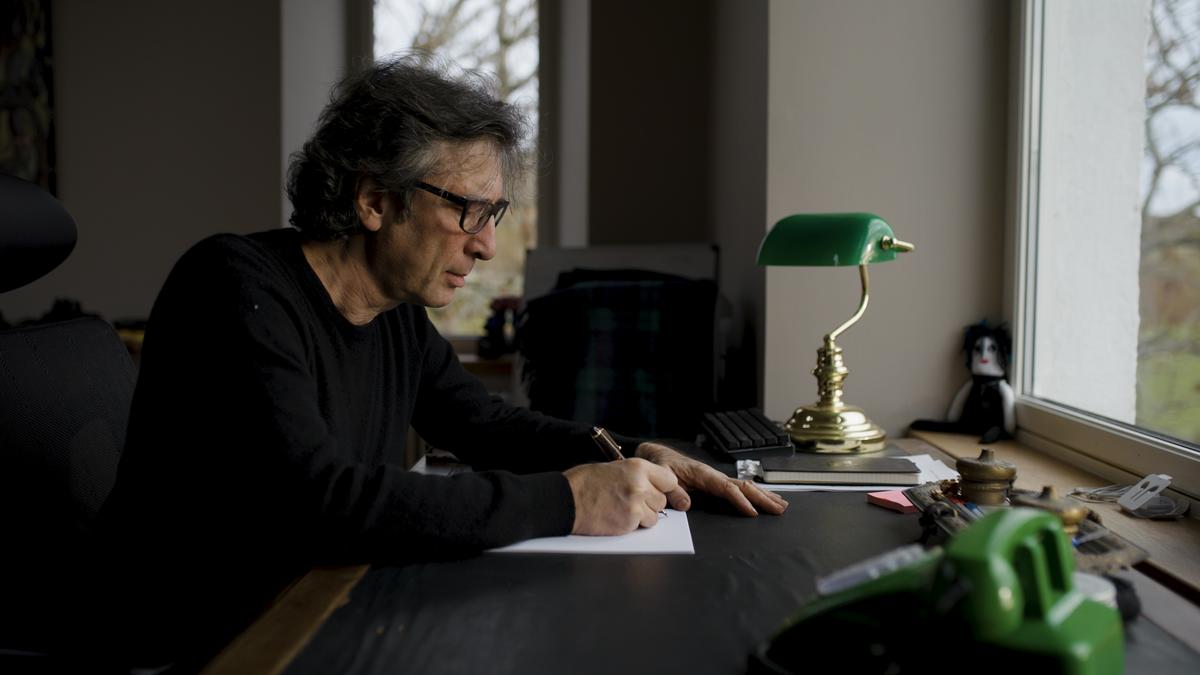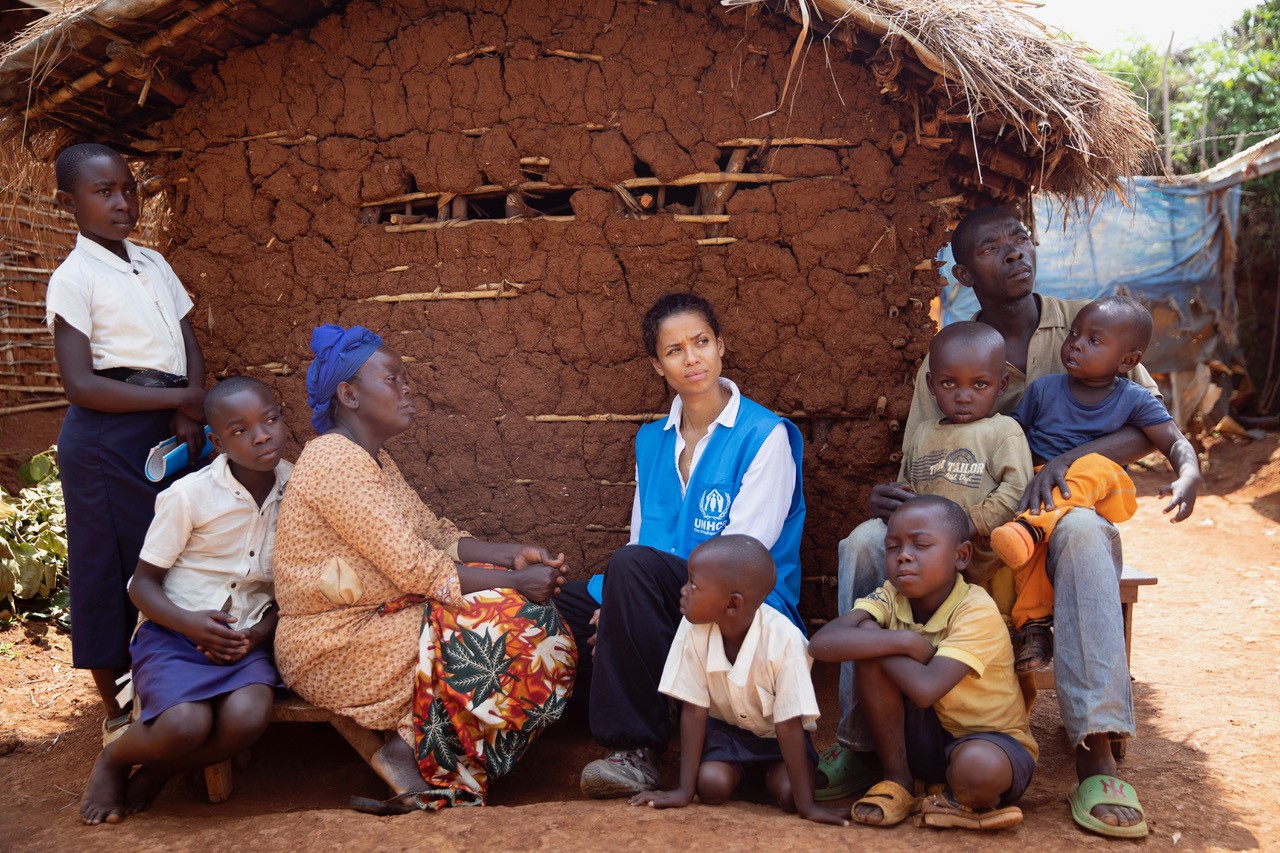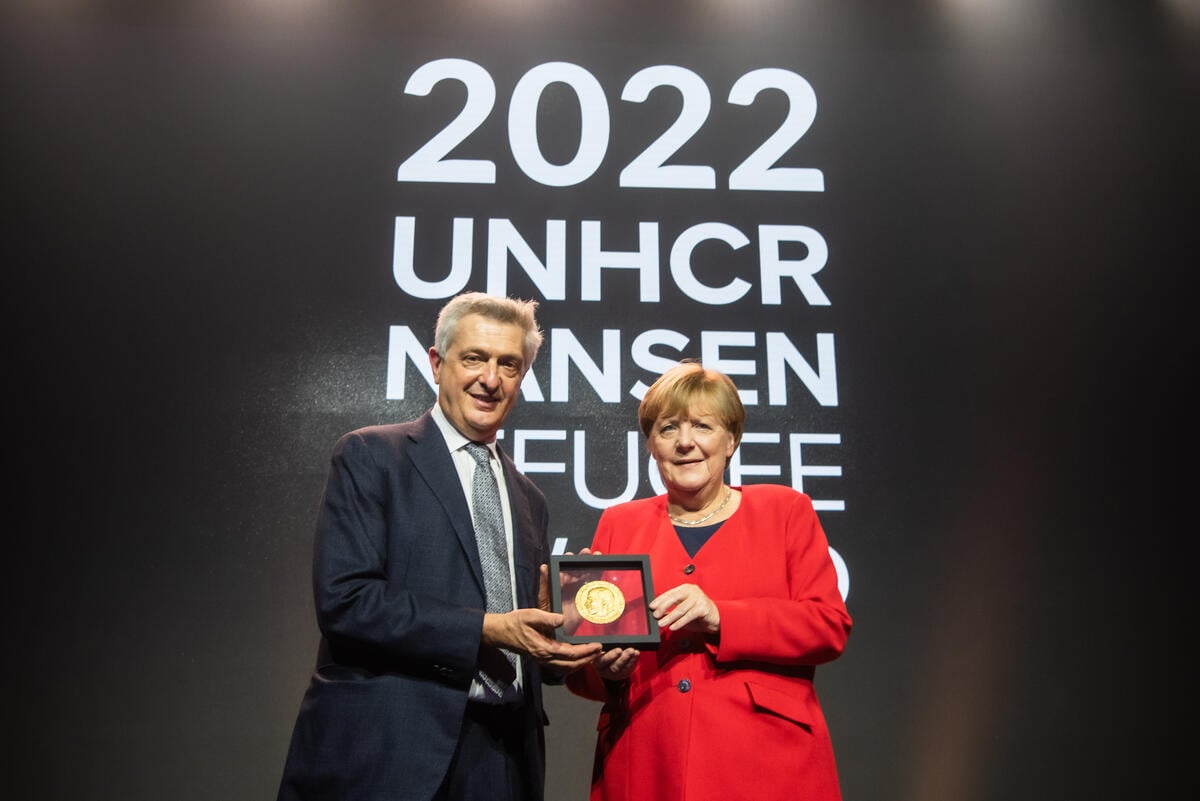Neil Gaiman launches crowdsourced animated film to help raise funds for Syrian refugees battling freezing temperatures and icy winds amid threat of Covid-19
Neil Gaiman launches crowdsourced animated film to help raise funds for Syrian refugees battling freezing temperatures and icy winds amid threat of Covid-19

Neil Gaiman - celebrated author and Goodwill Ambassador for UNHCR, the UN Refugee Agency - has joined forces with hundreds of fans and artists to release a new animated version of his poem What You Need To Be Warm.
The animated film aims to raise much needed funds for UNHCR’s Winter Appeal providing vital support for refugees in the Middle East including Syrian and Iraqi refugees, many of whom are battling their ninth winter away from home. This year is the hardest yet as refugees face snow, rain and freezing temperatures, as well as the impact of Covid-19 which has dramatically affected vulnerable families, put health at risk, devastated livelihoods, and pushed more refugees out into the cold.
Gaiman’s poem, written last year exclusively for UNHCR, reflects the journeys and challenges that refugees face, especially in the cold, winter months. Gaiman involved his twitter followers in the process asking them to share words and memories of warmth as sources of inspiration for the poem. Over 25,000 words were shared by fans across the world including Monica Lewinsky and fellow UNHCR Goodwill Ambassador Ben Stiller.
This year Gaiman released the poem back to his 2.4 million twitter followers asking them to submit artwork online to help him bring the poem to life as part of an animated film. Images of seven specific motifs in the poem were crowdsourced over 10 days using #drawforrefugees. Over 900 artworks were submitted by people of all artistic abilities from across the world, from school children and fans to illustrators and animators. A selection of the crowdsourced images have been combined into the animated film that also includes rotoscoped, illustrated footage of refugees and live action shots of Neil at home and reading the poem on the Isle of Skye, Scotland.
Neil said: “This year has been incredibly challenging and difficult for many people around the world. But this was an opportunity to come together to show kindness and creativity and to help thousands of vulnerable families.
“I have met Syrian refugees in Jordan who were forced to flee their homes often at a moment’s notice, only able to grab a few belongings. People have used their initiative and all the resources at their disposal to build the best shelters they can and provide for their families. But with the conflict now in its tenth year their savings have been exhausted and, especially with covid, there are very few opportunities to earn money and they will need UNHCR’s help to survive the winter.
“This animated film was a chance for people to come together to help raise awareness and life-saving funds to protect these families. I was blown away by the response and quality of drawings submitted online. People really care and want to help and they still can by making a donation!”
Over six million people have fled Syria, most are living in neighbouring countries like Iraq, Jordan, Lebanon, Egypt and Turkey. More than six million are displaced from their homes within Syria. UNHCR’s Winter Appeal will help families to buy life-saving clothing, blankets and essentials to keep them warm as they struggle in makeshift and overcrowded shelters in freezing temperatures.
Samira, who lives in the Azraq refugee camp in Jordan, helped design a rose motif that bordered a giant Solidarity Scarf featuring the words of What You Need To Be Warm. She said:
“All of us, and I speak for all Syrians, have been through what [Neil] describes in the poem. There were points when we could not find food to feed our children when…there was nothing to cover our children with to keep them warm. All of us have gone through this journey.”
Irene Omondi is the UNHCR Camp Manager of Za’atari refugee camp, home to around 77,000 women, men and children. She said:
“With tens of thousands of families still unable to go home, or no longer having homes to return to, UNHCR’s assistance is needed this winter more than ever. But our pandemic response has left our resources at breaking point and we urgently need donations. The pandemic does not just threaten their health, but every aspect of their lives. Before COVID-19, some Syrian refugees found occasional work in the informal economy, earning enough to feed their families for a day. But those opportunities have now all but disappeared. Those who have fled are barely surviving now; how will they get through the winter?”
For more information on how to support please visit: www.unhcr.org/keepwarm
Ends.
Notes to editors:
To arrange an interview with Neil Gaiman or a UNHCR aid worker in Lebanon/Jordan please contact:
- Louise Hill: [email protected], +44 (0) 7787300200
- Coco Campbell: [email protected], +44 (0) 7715420076
To preview the new animated film of What You Need To Be Warm:
- Please register at media.unhcr.org and follow this link https://media.unhcr.org/Package/2CZ7A2K9YDN4 in order to:
- Preview and download a selection of the crowdsourced images featured in the film of What You Need To Be Warm
- Download all versions of the film of What You Need To Be Warm (English, French, Spanish, Arabic in wide, vertical, square formats):
About UNHCR:
UNHCR, the UN Refugee Agency, is a global organisation dedicated to saving lives, protecting rights and building a better future for people forced to flee their homes because of conflict and persecution. We lead international action to protect refugees, forcibly displaced communities and stateless people.
We deliver life-saving assistance, help safeguard fundamental human rights, and develop solutions that ensure people have a safe place called home where they can build a better future. We also work to ensure that stateless people are granted a nationality.
We work in over 130 countries, using our expertise to protect and care for millions. www.unhcr.org
What You Need to be Warm by Neil Gaiman
A baked potato of a winter's night to wrap your hands around or burn your mouth.
A blanket knitted by your mother's cunning fingers. Or your grandmother's.
A smile, a touch, trust, as you walk in from the snow
or return to it, the tips of your ears pricked pink and frozen.
The tink tink tink of iron radiators waking in an old house.
To surface from dreams in a bed, burrowed beneath blankets and comforters,
the change of state from cold to warm is all that matters, and you think
just one more minute snuggled here before you face the chill. Just one.
Places we slept as children: they warm us in the memory.
We travel to an inside from the outside. To the orange flames of the fireplace
or the wood burning in the stove. Breath-ice on the inside of windows,
to be scratched off with a fingernail, melted with a whole hand.
Frost on the ground that stays in the shadows, waiting for us.
Wear a scarf. Wear a coat. Wear a sweater. Wear socks. Wear thick gloves.
An infant as she sleeps between us. A tumble of dogs,
a kindle of cats and kittens. Come inside. You're safe now.
A kettle boiling at the stove. Your family or friends are there. They smile.
Cocoa or chocolate, tea or coffee, soup or toddy, what you know you need.
A heat exchange, they give it to you, you take the mug
and start to thaw. While outside, for some of us, the journey began
as we walked away from our grandparents' houses
away from the places we knew as children: changes of state and state and state,
to stumble across a stony desert, or to brave the deep waters,
while food and friends, home, a bed, even a blanket become just memories.
Sometimes it only takes a stranger, in a dark place,
to hold out a badly-knitted scarf, to offer a kind word, to say
we have the right to be here, to make us warm in the coldest season.
You have the right to be here.








